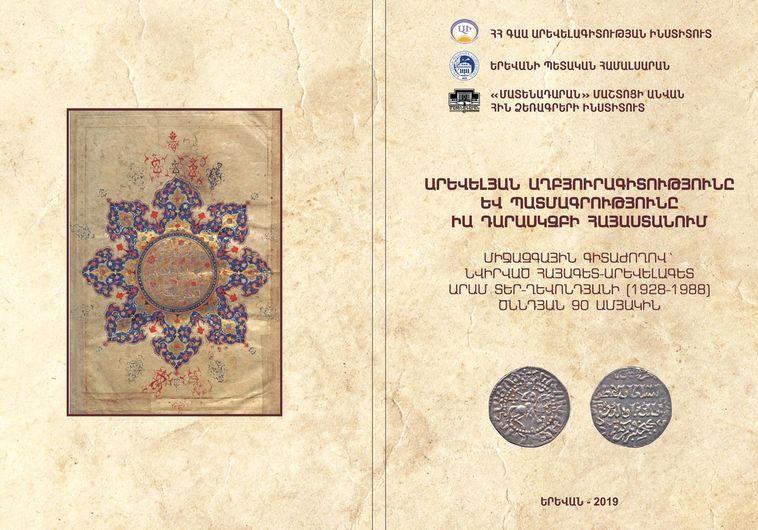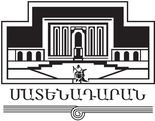
On June 20, the opening ceremony of the international conference entitled “The Study of Oriental Sources and Historical Research in Armenia in the Early 21st Century” took place in the Sessions Hall of Mashtots Matenadaran. Yuri Suvaryan, the Academic Secretary of the Department of Armenology and Social Sciences of the National Academy of Sciences (NAS) of the RA, delivered an opening speech. The Academician stated that “Aram Ter-Ghevodyan left his profound imprint on Armenian studies. He carried out research in the history of Armenia of the 7th–9th centuries, he published many studies on the Armenian-Arab relations and translated works of Armenian historiographers into Modern Armenian. Today, those who continue his work are preparing a digital library of Oriental source study. On the last day of the conference, we’ll be present at the opening of the Digital Library of Oriental Studies.”
Samvel Karabekyan, Adviser to Arayik Harutyunyan, the Minister of Education, Science, Culture, and Sport of the RA, conveyed the Minister’s welcoming speech to the participants of the conference. Welcoming speeches were also delivered by Academician Ruben Safrastyan, the Director of the Institute of Oriental Studies, Professor Ruben Melkonyan, the Dean of the Faculty of Oriental Studies at the Yerevan State University (YSU), and Kevork Bardakjian, Professor at the University of Michigan, Ann Arbor.
On behalf of his family, Vahan Ter-Ghevondian, the Director of Matenadaran, expressed gratitude to the organizing committee of the conference, the Presidium of the NAS, the Institute of Oriental Studies of the NAS, and particularly to Azat Bozoyan, Doctor of Sciences (History), the Head of the Department of Oriental Source Study, thanks to whose efforts it became possible to realize the conference on full scale.
Vahan Ter-Ghevondian said: “I am glad there are continuators of my father’s work. Today, his former students hold important offices in the sphere of science and education, many of them also in the government, and some of them are already well-experienced representatives of the diplomatic corps.
My father is always mentioned with high respect and affection in the Department of Middle Ages at the Institute of History of the NAS, where he worked for many years, in the Institute of Oriental Studies, where he founded the Department of Oriental Source Study, as well as in the YSU, where he was a lecturer, and where some years ago, with the support of the Gulbenkian Foundation, a research hall named after Aram Ter-Ghevondian, with a library and equipment, was opened.
He also had a close relationship with Matenadaran and its staff; most of his works were written in Matenadaran’s reading hall, where many people still remember him, and it is no coincidence that the opening ceremony of the conference is taking place in this hall.
After my father’s death, when I was putting his archive in order, I came across a paper, on the one side of which a broad plan of his further studies was written down. He was going to carry out comprehensive research in (and perhaps start a series of books on) the Armenian-Arab relations from the very beginning, i.e. from the 7th century, up to the early 16th century, that is to say, the establishment of Ottoman rule in Arab countries.
31 years have passed from Aram Ter-Ghevondian’s death. During these three decades, a number of important monographs, which could be included in this series, have been published, but today we are still unprepared to bring such a monumental project to completion. It is necessary to train specialists, encourage young gifted scholars to be involved in the study of medieval history, and to gradually fill the gap with new works. This would mean to fulfill Aram Ter-Ghevondian’s dream, paying the best tribute to his memory, and, certainly, this would be a significant contribution to Armenian and Arabic studies.”
